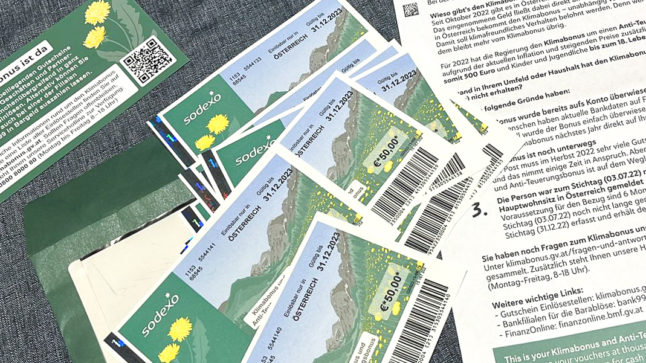Austria has a mandatory health and social insurance policy, which means that every resident needs to be insured.
EXPLAINED: What is it like being self-employed in Vienna?
Most people in Austria, 82 percent in total, are insured by ÖGK through their employers.
Self-employed workers, however, have to make their payments themselves with Sozialversicherung der Selbständigen, or SVS.
Several differences come from this, the main one being that self-employed people need to register and make the payments by themselves, while employed workers will have their contributions automatically taken from salaries and paid for by employers.
READ MORE: Everything you need to know about becoming a freelancer in Austria
Another key distinction is that SVS will not cover 100 percent of costs when it comes to health treatments and doctor consults.
Self-employed people need to cover a 20 percent proportion of costs, the so-called Selbstbehalt. That means that if a doctor that works with the SVS insurer charges € 100 for his consultation, SVS will pay €80, and the rest, €20, will come via invoice for the self-employed person to pay for afterwards.
Bills rarely come this high, though. Even so, there is a way to reduce that co-pay rate to 5 percent.
The ‘healthy self-employed program’
SVS has a program to promote health that will let you cut the costs of payment, conditional to achieving specific health goals.
Insured people can arrange these health goals with their doctors. The targets can be regarding blood pressure, weight, exercise, tobacco and alcohol consumption, according to SVS.
READ MORE: Top co-working spaces in Austria for freelancers and entrepreneurs
After six months, you can arrange another consultation with the doctor to check on those goals. If you have met them, the doctor can sign off on reducing copayment costs from 20 percent to 10 percent.
After two to three years, another evaluation is necessary, and people who kept their achievements can co-payments to 5 percent.
The rates can also be achieved by “fit” people as there can be “maintenance” goals.
Self-employed people can make an appointment at the SVS Health Centre in Vienna to agree on goals or go straight to their own family doctor.
The My SVS website (you have to be logged in to access) has a PDF form with all the possible goals that can be agreed together with the doctor, including columns for the “current values”, a separate column for goals (including things such as “continue to be a non-smoker”), and a third column for the “after” evaluation.
READ MORE: Everything you need to know about health insurance for freelancers in Austria
Useful links
SEA – The self-employed in Austria group supports self-employed individuals by delivering information in the form of guidebooks and free articles in English.
SVS – The social insurance organisation for self-employed people in Austria.
WKO – The Austrian Chamber of Commerce is a useful source of information for self-employed people.
Useful vocabulary
Sozialversicherung – social insurance
Selbständigen – self-employed
Neue Selbständige – new self-employed
Steuer – tax
Gesundheitsversicherung – health insurance
Pensionsvorsorge – pension provision
Unfallversicherung – accident insurance
Verwaltungskosten – administration costs



 Please whitelist us to continue reading.
Please whitelist us to continue reading.
Member comments